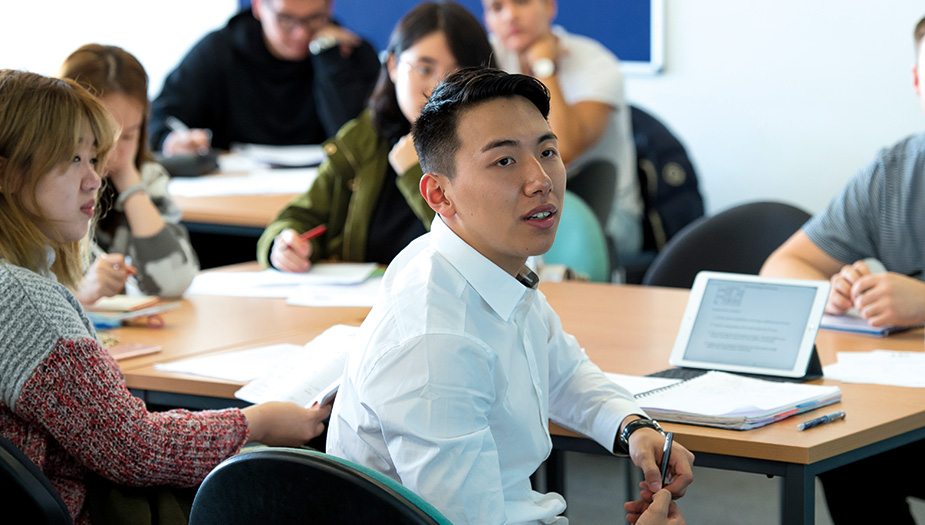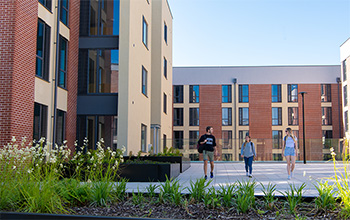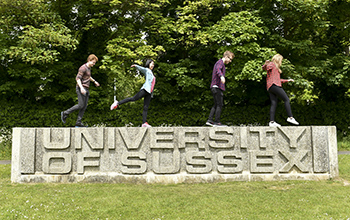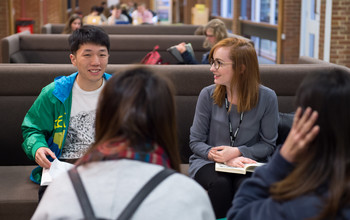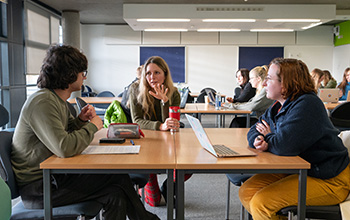Key information
Duration
4 years full time
Typical A-level offer
ABB-BBB
UCAS code
N11F
Start date
September 2027
Location
Why choose this course at Sussex?
- Develop the data analytics skills that industries need to help them translate data into strategic insights.
- Learn to adapt in a rapidly changing tech landscape through hands-on projects, working with industry partners and practical placement experience.
- Study the latest digital tools used in the analytics profession, for coding, statistical modelling, business reporting, forecasting and financial analysis.
Modern businesses make decisions based on data. Data informs everything from finance and logistics to marketing and policy. Many industries need professionals who can translate data into insights.
Our Business Analytics BSc is for anyone looking for a data-driven business career. You’ll develop data-driven decision-making skills which are useful across economics, statistics, finance and marketing. You’ll be able to use your skills to solve real-world business problems.
On this course you will:
- apply the latest data analytics techniques to identify and solve business problems
- integrate business knowledge with analytical insights to inform strategic decision-making
- use advanced tools in econometrics, machine learning, marketing analytics and business intelligence
- learn through hands-on projects, case studies and working with industry partners.
To support the development of your technical and analytical skills, you’ll study digital tools used in the analytics profession, including:
- coding environments such as Python, R, and Stata for statistical modelling
- Power BI and Tableau for dashboard design, business reporting, and data storytelling
- advanced use of Excel for financial analysis, forecasting, and simulation.
Our research-active faculty are at the forefront of the latest developments in business analytics. Among their areas of expertise is AI, econometrics, marketing analytics and strategic management.
We have strong industry links and there are opportunities to collaborate with outside companies during the course.
The Business School follows the principles of Responsible Business Education (PRME). The course will help you assess the ethical impact of data-driven decision making, and its impact on policy, practice and people when addressing global business challenges.
- 1st in the UK for annual research income (Chartered Association of Business Schools 2025)
- =11th in the UK for Economics (Shanghai Ranking Global Ranking of Academic Subjects 2025)
Accreditation
You’ll join the EQUIS and AMBA-accredited University of Sussex Business School. Find out more
Your optional placement
To help you gain experience and increase your employability, you can apply for an optional placement as part of your course. This can be a fantastic opportunity to gain real-life insight into industry as well as skills valued by employers. You’ll be responsible for applying for and securing your placement. Our dedicated careers team can help you:
- find an employer
- draft an application
- prepare for interviews.
Don’t worry if you’re not successful, you’ll simply transfer to a non-placement version of your course.
The job market of the future is digital and data intensive. To stand out, students need technical, analytical and strategic skills which this course offers from day one.”Adnan Fakir
Associate Professor in Economics
Undergraduate Visit Days
Learn more about your chosen course, explore our distinctive campus, and meet our staff and students.
Book a Visit Day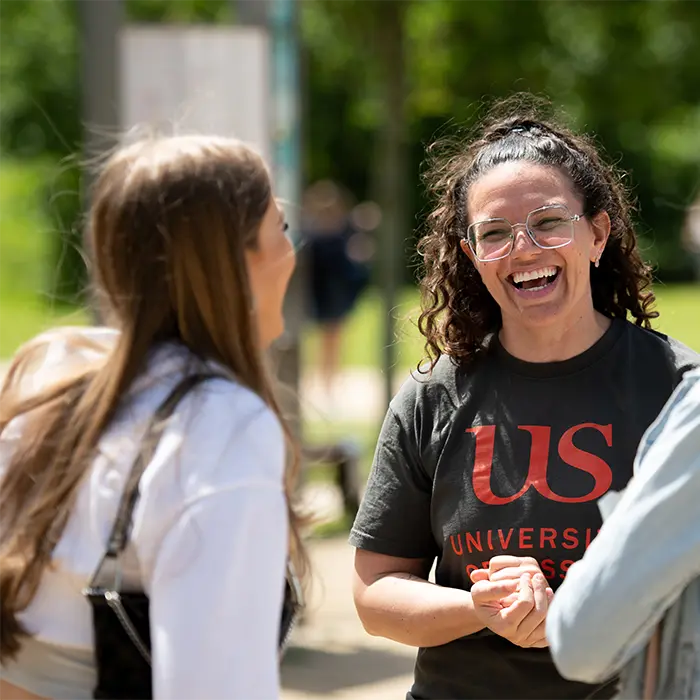
On campus - in person
You’ll study for this degree on our campus, joining our academics and fellow students. Combined with in-person contact time, digitally supported educational resources, library collections and independent study, this course is designed to give you an inclusive education. Your learning experience may also include work placements, field trips, studying abroad and internationalisation experiences.
Find out about our beautiful campus
Take our virtual tour
Be inspired by our beautiful campus and buzzing Brighton in this immersive 360° experience.
Begin your tour
As a founding partner of ResearchPlus, a collaboration of research-focused universities, we engage with government, industry and civil society to support economic growth, prosperity and wellbeing across the whole of the UK.
Find out more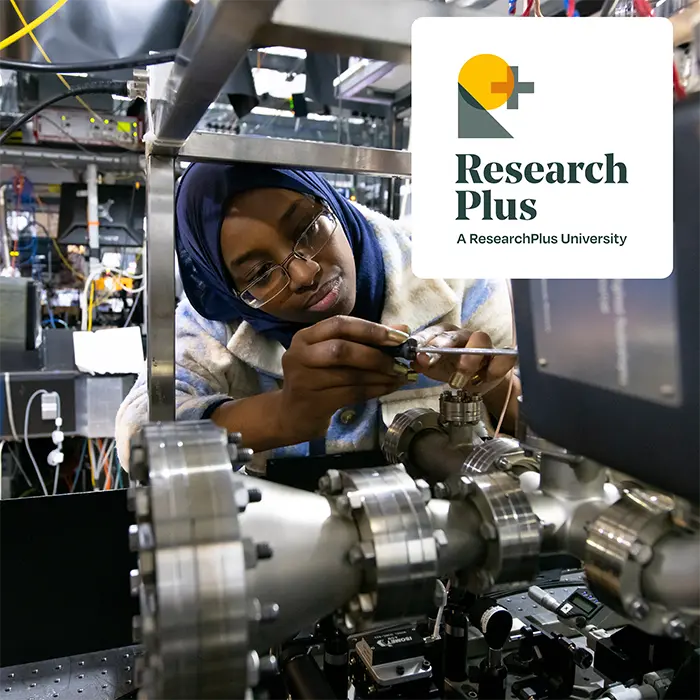
Modules
This is a single-honours course, allowing you to focus in depth on your core subject. Find out more from our guide to undergraduate study
-
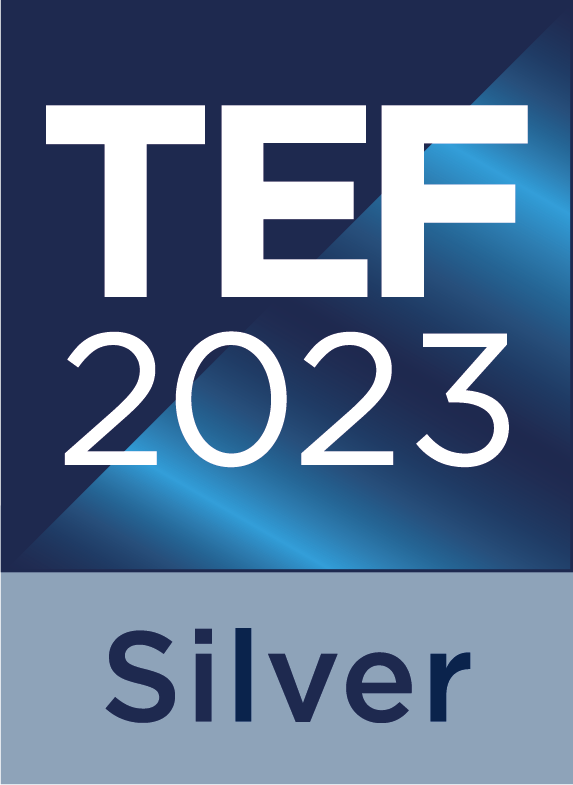 Silver
The student experience and student outcomes are typically very high quality.
Silver
The student experience and student outcomes are typically very high quality.
This rating was awarded in 2023, for four years. (Teaching Excellence Framework 2023)
Find out more about our approach to teaching and supporting you to thrive
-
Year 1 at Sussex
Your modules
Core modules
Core modules are taken by all students on the course. They give you a solid grounding in your chosen subject and prepare you to explore the topics that interest you most.
Autumn teaching
- Introduction to Business Analytics
- Introduction to Economics
- Introduction to Mathematics for Finance and Economics
Spring teaching
- Business School Career Preparation
- Introduction to Financial Accounting
- Introduction to Marketing
- Introduction to Statistics
- Microeconomics 1
Your degree
Practical and study skills will be included within and alongside your modules.
Teaching
Teaching methods typically include lectures, seminars and practicals.
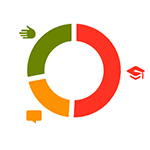
51%: Lecture
21%: Seminar
28%: Practical
Assessment
Assessment methods typically include coursework, exams, a project/report, group work and practicals.
Contact hours and workload
This year of study includes approximately 1,200 hours of work. This breaks down into about 256 hours of contact time and about 944 hours of independent study.
Engage and actively participate throughout your studies to get the most out of your course.
-
Year 2 at Sussex
Your modules
Core modules
Core modules are taken by all students on the course. They give you a solid grounding in your chosen subject and prepare you to explore the topics that interest you most.
Autumn teaching
- Consumer Behaviour
- Introduction to Econometrics (level 5)
- Managing Operations
- Mathematical Statistics
Spring teaching
- Applied Statistics for Finance and Economics
- Corporate and International Finance
- Data Coding & Visualisation
- Marketing Analytics and Metrics
Your degree
Practical and study skills will be included within and alongside your modules.
Teaching
Teaching methods typically include lectures, seminars and practicals.

51%: Lecture
21%: Seminar
28%: Practical
Assessment
Assessment methods typically include coursework, exams, a project/report, group work and practicals.
Contact hours and workload
This year of study includes approximately 1,200 hours of work. This breaks down into about 256 hours of contact time and about 944 hours of independent study.
Engage and actively participate throughout your studies to get the most out of your course.
-
Placement
You can apply to take a paid professional placement in the third year of your degree. Recent students have gone on placements at:
- First Equity Partners
- PwC (PricewaterhouseCoopers)
- Ernst & Young.
For more details, visit Department of Economics: Placements
Our careers team offers dedicated support to help you obtain a placement, including:
- finding an employer
- drafting an application
- preparing for interviews
- ongoing help throughout a placement.
Don’t worry if you’re not successful in securing a placement, you’ll simply transfer to a non-placement version of your course.
Please note that if you’re receiving – or applying for – USA federal Direct Loan funds, you can’t undertake your placement in the USA if the number of credits for the placement/internship exceeds 25% of the total credits for your course. Find out more about American Student Loans and Federal Student Aid
-
Year 3 at Sussex
Your modules
Core modules
Core modules are taken by all students on the course. They give you a solid grounding in your chosen subject and prepare you to explore the topics that interest you most.
Autumn teaching
Spring teaching
Options
Alongside your core modules, you can choose options to broaden your horizons and tailor your course to your interests. This list gives you a flavour of our options, which are kept under review and may change, for example in response to student feedback or the latest research.
While it’s our aim for students to take their preferred combinations of options, this can’t be guaranteed and will be subject to timetabling. Options may be grouped and if so, students will be able to choose a set number of options from the selection available in any particular group.
Autumn teaching
Spring teaching
- Corporate Social Responsibility, Sustainability and Business Ethics
- Digital Marketing
- Economics of Sports
Your degree
Practical and study skills will be included within and alongside your modules.
Teaching
Teaching methods typically include lectures, seminars and practicals.

51%: Lecture
21%: Seminar
28%: Practical
Assessment
Assessment methods typically include coursework, exams, a project/report, group work and practicals.
Contact hours and workload
This year of study includes approximately 1,200 hours of work. This breaks down into about 256 hours of contact time and about 944 hours of independent study.
Engage and actively participate throughout your studies to get the most out of your course.
Customise your course
Study what inspires you
At Sussex, we collaborate across disciplines to tackle the biggest challenges facing the world. And – different to other universities – we invite you to be part of this from the moment you arrive.
Regardless of your background or chosen degree, you’ll have the opportunity to engage with issues across disciplines – from the humanities to the sciences, and social sciences.
In the first term, you choose one of three new flagship electives, each of which focuses on our transformation themes of Digital and Data Futures, Environmental Sustainability, and Human Flourishing:
Alternatively, you may choose to study a language from Arabic, British Sign Language, French, German, Italian, Japanese, Mandarin Chinese and Spanish. Or you can choose to study English Language Teaching. You’ll develop your language skills while also exploring connections across disciplines and cultures.
After the first term, you can choose from across our Progressive Futures electives. Alternatively, you may choose to study – or continue to learn – a language. This gives you the opportunity to customise your course and study what inspires you.
Check out all our electives below. Each elective lasts for one term.
On this course, you’ll have the opportunity to explore one elective in the first term in Year 1.
-
Progressive Futures electives
Year 1
Autumn teaching
Spring teaching
- (Re)Imagining Future Worlds through Humour and Play
- Adapting Literature
- American Political Culture
- Art and Artists
- Black British History
- Careers in the Cultural & Creative Industries
- Climate Justice: Policy & Activism in a Time of Global Crisis
- Gender Across Cultures
- Gendering the Life Course
- Global Cinema E
- Global Cultures, Local Lives
- Global Issues
- Global Migration in a Digital Age
- Horror Films: Fears, Phobias and Fantasies
- Inclusive Practice with Young People
- Introduction to Human Rights
- Introduction to the European Union
- Law, Technology and Human Rights
- Leading Social Change: Communication and Activism
- Mental Health and Madness: exploring socio-cultural approaches
- Music and Society
- People, Culture and the Global Economy
- Philosophy, Politics and the Middle East
- Principles of Cognitive Science
- Psychology Now: Contemporary Approaches to Understanding Behaviour
- Society, State and Humanity
- The Age of Adolescence: Reading 20th Century Youth Culture
- The Look of America
- The Meaning of Life
- Understanding the Criminal Justice System
Year 2
Autumn teaching
- Access, Equity and Gender
- Analysing Film (E)
- Artificial Intelligence and the Future of Law
- Biological Psychology
- Business in World Politics
- Crime and Criminal Justice
- Decoding Cultures of Technology and Social Change
- Feminist Philosophy
- Forest Food Gardens: The Theory and Practice of Food Growing
- Global News Cultures
- Inclusion, Diversity and Equity in Education
- Inter-cultural Encounters
- Landscapes of Resistance and Social Justice
- Leading Social Change: Taking Action
- Migration, Identity and Rights
- Police and Policing (Elective)
- Political and Social Change in Contemporary Europe
- Race and Ethnicity in US History
- Sleep and Mental Health
- Sustainability and Climate Justice
- Video Games: Creative & Critical Writing
Spring teaching
- Activist Skills for Global Justice and Sustainable Futures
- Advertising (E)
- American City
- Autism and Education
- Clinical Psychology and Mental Health
- Contemporary Issues in Law
- Creative Coding
- Creative Production in the Arts
- Decolonising Education: Knowledge, Power and Sustainable Societies
- Digital Law Toolkit
- Education, Peacebuilding and Conflict
- Everyday Digital: Generation, Life-Course and Expertise
- Exploring Death and Dying; Cultural, Theoretical and Practice Perspectives
- Exploring Teaching in Schools
- Forest Food Gardens: Communities, Ecologies and Collaboration
- Language, Identity and Nation
- Language, Mind and Brain
- Making Sense of Complexity: Tools for Addressing Real World Sustainability Challenges
- Philosophy of Race
- Psychology of Cognitive Processes
- Punishment and Penology
- The Far Right and the Politics of Immigration
- The Liberal World Order - in Crisis
-
Languages electives
Year 1
Autumn teaching
- Arabic Beginners A
- Arabic Intermediate A
- British Sign Language and Deaf Culture 1A
- British Sign Language and Deaf Culture 2A
- Chinese Beginners A
- Chinese Intermediate A
- French Beginners A
- French For Professional Purposes 1A
- French Intermediate A
- German Beginners A
- German Intermediate A
- Introduction to TESOL - Theory and Methodology 1
- Italian Beginners A
- Italian Intermediate A
- Japanese Beginners A
- Japanese Intermediate A
- Spanish Beginners A
- Spanish for Professional Purposes 1A
- Spanish Intermediate A
Spring teaching
- Arabic Beginners B
- Arabic Intermediate B
- British Sign Language and Deaf Culture 1B
- British Sign Language and Deaf Culture 2B
- Chinese Beginners B
- Chinese Intermediate B
- French Beginners B
- French For Professional Purposes 1B
- French Intermediate B
- German Beginners B
- German Intermediate B
- Italian Beginners B
- Italian Intermediate B
- Japanese Beginners B
- Japanese Intermediate B
- Spanish Beginners B
- Spanish for Professional Purposes 1B
- Spanish Intermediate B
- TESOL Teaching Practice 1
Year 2
Autumn teaching
- Arabic Beginners A
- Arabic Intermediate A
- British Sign Language and Deaf Culture 1A
- British Sign Language and Deaf Culture 2A
- Chinese Beginners A
- Chinese Intermediate A
- French Beginners A
- French For Professional Purposes 1A
- French Intermediate A
- German Beginners A
- German Intermediate A
- Introduction to TESOL - Theory and Methodology 1
- Italian Beginners A
- Italian Intermediate A
- Japanese Beginners A
- Japanese Intermediate A
- Spanish Beginners A
- Spanish for Professional Purposes 1A
- Spanish Intermediate A
Spring teaching
- Arabic Beginners B
- Arabic Intermediate B
- British Sign Language and Deaf Culture 1B
- British Sign Language and Deaf Culture 2B
- Chinese Beginners B
- Chinese Intermediate B
- French Beginners B
- French For Professional Purposes 1B
- French Intermediate B
- German Beginners B
- German Intermediate B
- Italian Beginners B
- Italian Intermediate B
- Japanese Intermediate B
- Spanish Beginners B
- Spanish for Professional Purposes 1B
- Spanish Intermediate B
- TESOL Teaching Practice 1
These electives are designed to help you explore key global challenges with world-leading experts from across the University and beyond.
Whichever path you take, you’ll develop key skills to tackle the complexity of contemporary challenges. This will help improve your employment prospects and help you contribute to creating progressive futures for all.
Spirit of Sussex Award
Feel involved in life at the University, make friends and enrich your experience with us – the Spirit of Sussex Award is our way of recognising your extracurricular and voluntary achievements.
-
Video transcript
Hi everyone! As I'm sure you've all heard by now, the Spirit of Sussex Award is now live.
Students across the Sussex community are already earning their points
What will you do to earn yours?
There's so many ways to get involved.
Head over to the website to start your Spirit of Sussex journey.
Text: The Spirit of Sussex Award is an exciting new programme designed to recognise and celebrate the things you do outside your course.
Participating in the Award makes it easy and fun for you to get involved and make the most of university life.
We regularly review our modules to incorporate student feedback, staff expertise, as well as the latest research and teaching methodology. We’re planning to run these modules in the academic year 2026/27. However, there may be changes to these modules in response to feedback, staff availability, student demand or updates to our curriculum. We’ll make sure to let you know of any material changes to modules at the earliest opportunity.
We’ll do our best to provide as much optional choice as we can, but timetabling constraints mean it may not be possible to take some module combinations. The structure of a small number of courses means that the order of modules or the streams you choose may determine whether modules are core or optional. This means that your core modules or options may differ from what’s shown here.
Check back in January 2027 for more details of the modules running in the academic year 2027/28.
Our experts
This course covers the ethical and sustainability impact of decision-making in a digital environment. Students gain a critical perspective that challenges established views and addresses global challenges.”Sambit Bhattacharyya
Professor of Economics
Careers
- 86% of Sussex undergraduates have completed work experience by the end of their course (University of Sussex Career Readiness data at point of graduation 2023/24)
The need for expertise in data-driven decision-making in today’s business world will continue to grow in a rapidly changing technological landscape. Businesses and public sector organisations are increasingly reliant on data for competitive action.
This course will prepare you for employment in a range of roles, including:
- business analyst
- data analyst
- marketing analyst
- financial analyst
- operations manager.
You will also be well-prepared for roles in consulting, business intelligence and digital transformations.
With the focus of this course on quantitative, computational and applied skills, graduates will gain a set of highly transferable skills which will significantly boost employability.
You’ll benefit from our strong industry links and there are opportunities to collaborate directly with companies on projects during the course.
Based in the University of Sussex Business School, you’ll get extensive career support. This includes connecting you with employers, alumni mentoring, networking, guest lectures and workplace skills development.
Where do our graduates work now?
Surveyed 15 months after finishing their courses, our recent graduates from the Department of Economics worked for employers including:
- American Express
- Barclays
- Bloomberg
- Deloitte
- Department for Business & Trade
- EDF
- Food Standards Agency
- Grant Thornton
- Home Office
- HSBC
- KPMG
- Kubrick
- Lloyds
- Nationwide
- Carbon Trust
- The Walt Disney Company
- Zurich.
(Graduate Outcomes Survey 2017-2022)
Working while you study
Our Careers and Entrepreneurship team can help you find part-time work while you study. Find out more about career development and part-time work
This BSc immerses students in real-world learning. They develop practical experience, professional awareness and the analytical skills required by employers in a rapidly evolving data-driven economy.”Vasiliki Bamiatzi
Professor of Strategy and International Business
Design your future at Sussex
Taking the next step in your career can feel daunting, but we’ll help you to explore, connect and flourish throughout your studies and beyond.
As a Sussex student, you’ll learn how to tackle real-world challenges and have access to tailored programmes of careers support:
- our Career Lab helps you to explore your options, build key skills and connect with employers. Take part in internships, community consultancy projects and insight visits, where you can learn about life at organisations including Brighton & Hove Albion Football Club, Gatwick Airport and the Knepp Rewilding Project
- one-to-one appointments with your Faculty Careers Consultant can enable you to identify your career goals, write an effective CV and prepare for future interviews
- entrepreneurship initiatives like StartUp Sussex and Ideas Lab can empower you to turn your concepts into reality.
Explore how our Careers and Entrepreneurship team can support you
-
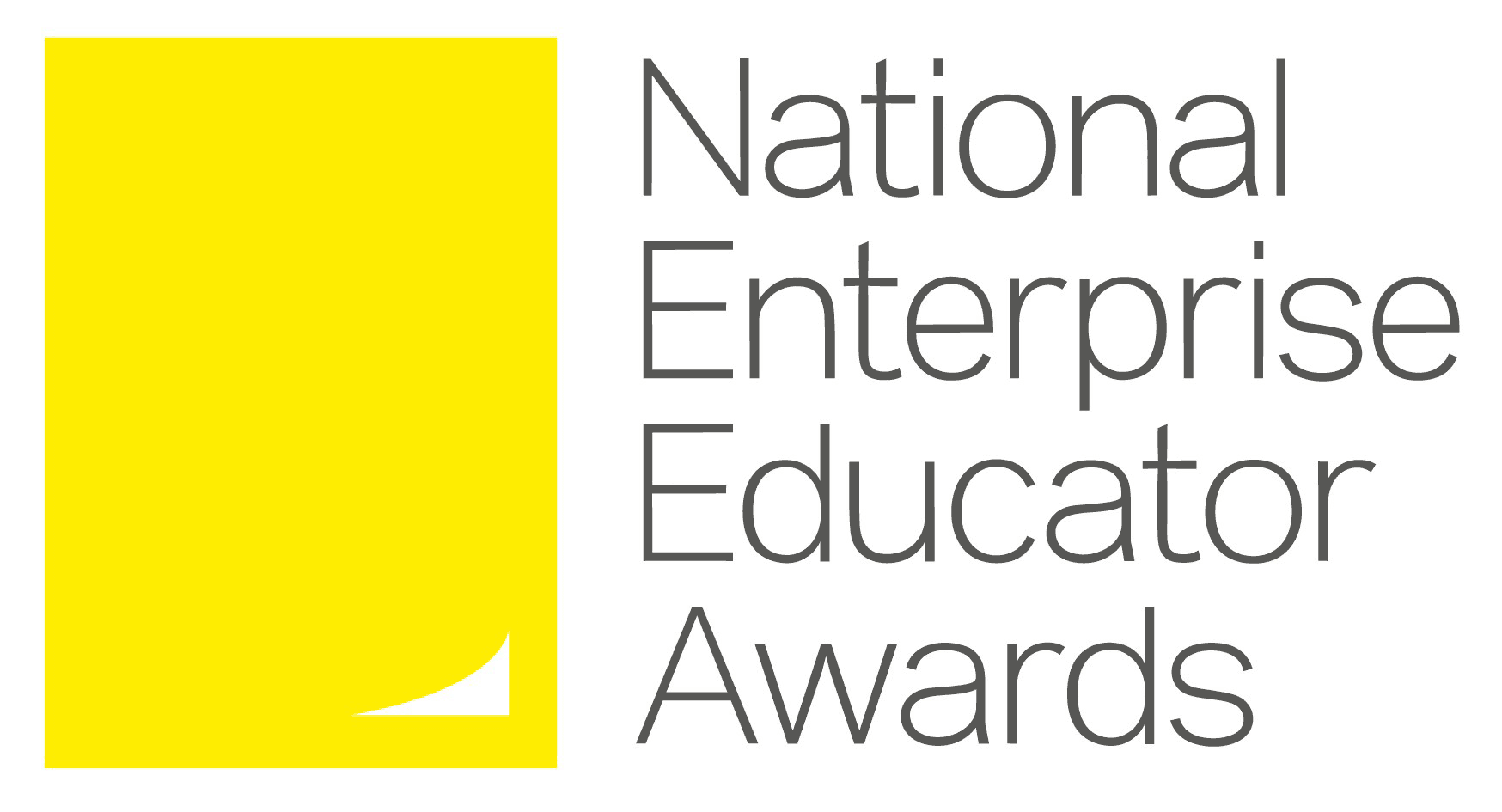 Winner
Entrepreneurship Catalyst Award
National Enterprise Educator Awards 2024
Winner
Entrepreneurship Catalyst Award
National Enterprise Educator Awards 2024
-
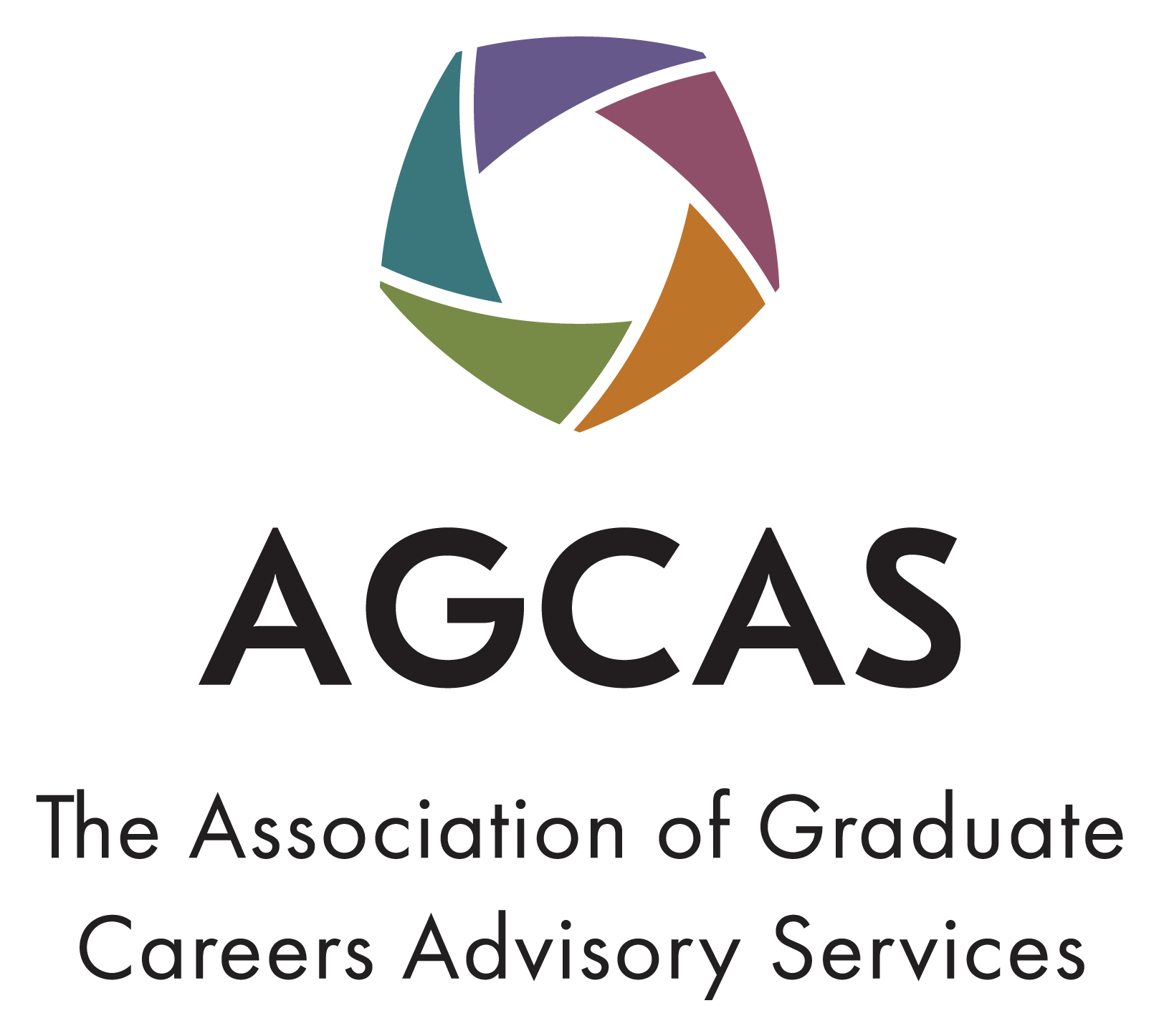 Winner
Supporting Student and Graduate Employability Award
AGCAS Awards for Excellence 2024
Winner
Supporting Student and Graduate Employability Award
AGCAS Awards for Excellence 2024
-
 Top 50
Best Universities for Work Experience in the UK
2025 Higherin Awards
Top 50
Best Universities for Work Experience in the UK
2025 Higherin Awards
Entry requirements
A-level
| Typical offer | ABB-BBB |
|---|---|
| Contextual offer | View contextual offer Not everyone has the same support to get to higher education – we help you reach your potential. When we receive applications through UCAS, we consider all factors and will sometimes make contextual offers as part of our Access and Participation Plan |
| GCSEs | You must have GCSE (or equivalent) Mathematics, with at least grade 6 (or grade B). We will also consider applicants with grade 5 in Maths if you are taking A-level Accounting, Business, Chemistry, Economics, Maths, Physics, Psychology, an LIBF Diploma in Financial Studies or Level 3 Certificate in Core Maths (grade B). AAT accounting qualifications can be used as an alternative to the grade 6 GCSE Maths requirement. You should also have a broad range of GCSEs grade 9-4 (A*-C), including good grades in relevant subjects. |
| Extended Project Qualification | We take the EPQ into account when considering your application and it can be useful in the summer when your results are released if you have narrowly missed the conditions of your offer. We do not routinely include the EPQ in the conditions of your offer but we sometimes offer alternative conditions that include the EPQ. If you wish to discuss this further please contact us |
Additional UK qualifications
Access to HE Diploma
| Typical offer | Pass Diploma with at least 39 level 3 credits at Merit or above including 24 credits at Distinction |
|---|---|
| Contextual offer | View contextual offer Not everyone has the same support to get to higher education – we help you reach your potential. When we receive applications through UCAS, we consider all factors and will sometimes make contextual offers as part of our Access and Participation Plan |
| Subjects | In a relevant area. |
| GCSEs | You must have GCSE (or equivalent) Mathematics, with at least grade 6 (or grade B). AAT accounting qualifications can be used as an alternative to the grade 6 GCSE Maths requirement. |
Cambridge Pre-U Principal Subjects (including A-level mixes)
| Typical offer | M1 M2 M2 If you have one A-level and two Cambridge Pre-U Principal Subjects we would expect you to have grade A at A-level and, M2 and M2 in two Pre-Us. If you have two A-levels and a Cambridge Pre-U Principal Subject we would normally expect you to have grades AB at A-level and M2 in Pre-U. |
|---|---|
| GCSEs | You must have GCSE (or equivalent) Mathematics, with at least grade 6 (or grade B). We will also consider applicants with grade 5 in Maths if you are taking A-level Accounting, Business, Chemistry, Economics, Maths, Physics, Psychology, an LIBF Diploma in Financial Studies or Level 3 Certificate in Core Maths (grade B). AAT accounting qualifications can be used as an alternative to the grade 6 GCSE Maths requirement. You should also have a broad range of GCSEs grade 9-4 (A*-C), including good grades in relevant subjects. |
International Baccalaureate
| Typical offer | 32 points overall from the full IB Diploma. |
|---|
Pearson BTEC Level 3 National Diploma and one A-level
| Typical offer | Grade B in A-level and Distinction, Distinction in Pearson BTEC Level 3 National Diploma.
|
|---|---|
| Contextual offer | View contextual offer Not everyone has the same support to get to higher education – we help you reach your potential. When we receive applications through UCAS, we consider all factors and will sometimes make contextual offers as part of our Access and Participation Plan |
| GCSEs | You must have GCSE (or equivalent) Mathematics, with at least grade 6 (or grade B). We will also consider applicants with grade 5 in Maths if you are taking A-level Accounting, Business, Chemistry, Economics, Maths, Physics, Psychology, an LIBF Diploma in Financial Studies or Level 3 Certificate in Core Maths (grade B). AAT accounting qualifications can be used as an alternative to the grade 6 GCSE Maths requirement. You should also have a broad range of GCSEs grade 9-4 (A*-C), including good grades in relevant subjects. |
Pearson BTEC Level 3 National Extended Certificate and two A-levels
| Typical offer | Grades BB in A-levels and Distinction in BTEC Level 3 National Extended Certificate. |
|---|---|
| Contextual offer | View contextual offer Not everyone has the same support to get to higher education – we help you reach your potential. When we receive applications through UCAS, we consider all factors and will sometimes make contextual offers as part of our Access and Participation Plan |
| GCSEs | You must have GCSE (or equivalent) Mathematics, with at least grade 6 (or grade B). We will also accept applicants with grade 5 in Maths if you are taking A-level Accounting, Business, Chemistry, Economics, Maths, Physics, Psychology, an LIBF Diploma in Financial Studies or Level 3 Certificate in Core Maths (grade B). AAT accounting qualifications can be used as an alternative to the grade 6 GCSE Maths requirement. You should also have a broad range of GCSEs grade 9-4 (A*-C), including good grades in relevant subjects. |
Pearson BTEC Level 3 National Extended Diploma (formerly BTEC Level 3 Extended Diploma)
| Typical offer | DDM |
|---|---|
| Contextual offer | View contextual offer Not everyone has the same support to get to higher education – we help you reach your potential. When we receive applications through UCAS, we consider all factors and will sometimes make contextual offers as part of our Access and Participation Plan |
| Subjects | Diploma would normally be Business related. |
| GCSEs | You must have GCSE (or equivalent) Mathematics, with at least grade 6 (or grade B). AAT accounting qualifications can be used as an alternative to the grade 6 GCSE Maths requirement. You should also have a broad range of GCSEs grade 9-4 (A*-C), including good grades in relevant subjects.
|
Scottish Highers
| Typical offer | AABBB |
|---|---|
| GCSEs | You will need Scottish National 5 in Mathematics at grade B. |
T Level
| Typical offer | Pass T-Level with an overall grade of Distinction including grade B in the Core Component |
|---|---|
| Contextual offer | View contextual offer Not everyone has the same support to get to higher education – we help you reach your potential. When we receive applications through UCAS, we consider all factors and will sometimes make contextual offers as part of our Access and Participation Plan |
| Subjects | Accounting, Finance, Management and Administration, Digital Business Services, Digital Support Services, Digital Production, Design and Development, Science, Design and Development for Engineering and Manufacturing |
| GCSEs | You must have GCSE (or equivalent) Mathematics, with at least grade 6 (or grade B). We will also consider applicants with grade 5 in Maths if you are taking A-level Accounting, Business, Chemistry, Economics, Maths, Physics, Psychology, an LIBF Diploma in Financial Studies or Level 3 Certificate in Core Maths (grade B). AAT accounting qualifications can be used as an alternative to the grade 6 GCSE Maths requirement. You should also have a broad range of GCSEs grade 9-4 (A*-C), including good grades in relevant subjects. |
Welsh Baccalaureate Advanced
| Typical offer | ABB from the Advanced Welsh Baccalaureate Skills Challenge Certificate and two A-levels |
|---|---|
| GCSEs | You must have GCSE (or equivalent) Mathematics, with at least grade B (or grade 6 in the new grading scale). We will also consider applicants with grade B/5 in Maths if you are taking A-level Accounting, Business, Chemistry, Economics, Maths, Physics, Psychology, an LIBF Diploma in Financial Studies or Level 3 Certificate in Core Maths (grade B). AAT accounting qualifications can be used as an alternative to the grade 6 GCSE Maths requirement. You should also have a broad range of GCSEs A*-C (9-4), including good grades in relevant subjects. |
International Baccalaureate
| Typical offer | 32 points overall from the full IB Diploma. |
|---|
European Baccalaureate
| Typical offer | Overall result of at least 77%. |
|---|---|
| Additional requirements | You must have a good level of Mathematics. |
Additional international qualifications
Australia
| Typical offer | Relevant state (Year 12) High School Certificate, and 88% or better in the ATAR or UAI/TER/ENTER, or a Queensland OP of 4 or better. |
|---|---|
| Additional requirements | You must have a good level of Mathematics. Our entry requirements are guidelines and we assess all applications on a case-by-case basis. |
Austria
| Typical offer | Reifeprüfung or Matura with an overall result of between 2.0 or better for first-year entry. |
|---|---|
| Additional requirements | You must have a good level of Mathematics. Our entry requirements are guidelines and we assess all applications on a case-by-case basis. |
Belgium
| Typical offer | Certificat d'Enseignement Secondaire Supérieur (CESS) or Diploma van Hoger Secundair Onderwijs with a good overall average of 65% or more. |
|---|---|
| Additional requirements | You must have a good level of Mathematics. Our entry requirements are guidelines and we assess all applications on a case-by-case basis. |
Bulgaria
| Typical offer | Diploma za Sredno Obrazovanie with excellent final-year scores (normally 5.5 overall with 6 in key subjects). |
|---|---|
| Additional requirements | You must have a good level of Mathematics. Our entry requirements are guidelines and we assess all applications on a case-by-case basis |
Canada
| Typical offer | Ontario Secondary School Diploma (OSSD) 75% from 6 grade 12 U, U/C or M courses. British Columbia Certificate of Graduation AABBB from 5 grade 12 courses. We also recognise the High School Diploma from other provinces -including Alberta, Manitoba, New Brunswick- where we look for strong performance in grade 12 subjects, and the Diplome d'Etudes Collegiales (DEC) from Quebec. |
|---|---|
| Additional requirements | You must have a good level of Mathematics. Our entry requirements are guidelines and we assess all applications on a case-by-case basis. |
China
| Typical offer | If you have the Goakao, we will consider applications for direct entry to first year. You would normally need an overall average of 75%, including required subjects. We are also pleased to consider applications if you are following a recognised International Foundation Year or you have one or more years of Higher Education in China at a recognised degree awarding institution. The Senior High School Graduation alone would not be sufficient for entry to our undergraduate degrees, but you may be eligible to apply for our International Foundation Year. If you successfully complete an International Foundation Year, you can progress on to a relevant undergraduate course at Sussex. Check which qualifications the International Study Centre accepts for the International Foundation Year. |
|---|---|
| Additional requirements | You must have a good level of Mathematics. Our entry requirements are guidelines and we assess all applications on a case-by-case basis. |
Croatia
| Typical offer | Maturatna Svjedodžba with an overall score of 4.2 |
|---|---|
| Additional requirements | You must have a good level of Mathematics. Our entry requirements are guidelines and we assess all applications on a case-by-case basis. |
Cyprus
| Typical offer | Apolytirion of Lykeion with an overall average of 18.5/20 will be considered for first-year entry.
|
|---|---|
| Additional requirements | You must have a good level of Mathematics. Our entry requirements are guidelines and we assess all applications on a case-by-case basis. |
Czech Republic
| Typical offer | Maturita with a very good overall average. |
|---|---|
| Additional requirements | You must have a good level of Mathematics. Our entry requirements are guidelines and we assess all applications on a case-by-case basis |
Denmark
| Typical offer | Højere Forberedelseseksamen (HF) or Studentereksamen with an overall average of at least 7 on the new grading scale. |
|---|---|
| Additional requirements | You must have a good level of Mathematics. Our entry requirements are guidelines and we assess all applications on a case-by-case basis. |
Finland
| Typical offer | Pass Ylioppilastutkinto with overall final result of EMMM or better |
|---|---|
| Additional requirements | You must have a good level of Mathematics. Our entry requirements are guidelines and we assess all applications on a case-by-case basis. |
France
| Typical offer | French Baccalauréat with overall final result of 13/20. |
|---|---|
| Additional requirements | You must have a good level of Mathematics. Our entry requirements are guidelines and we assess all applications on a case-by-case basis. |
Germany
| Typical offer | German Abitur with an overall result of 2.0 or better. |
|---|---|
| Additional requirements | You must have a good level of Mathematics. Our entry requirements are guidelines and we assess all applications on a case-by-case basis. |
Greece
| Typical offer | Apolytirion with an overall average of 18.5 will be considered for first-year entry. |
|---|---|
| Additional requirements | You must have a good level of Mathematics. Our entry requirements are guidelines and we assess all applications on a case-by-case basis. |
Hong Kong
| Typical offer | Hong Kong Diploma of Secondary Education (HKDSE) with grades of 5, 4, 4 from three subjects including two electives. |
|---|---|
| Additional requirements | You must have a good level of Mathematics; you will need a score of 3 in Core Mathematics. Our entry requirements are guidelines and we assess all applications on a case-by-case basis. |
Hungary
| Typical offer | Erettsegi/Matura with a good average of at least 55544. |
|---|---|
| Additional requirements | You must have a good level of Mathematics. Our entry requirements are guidelines and we assess all applications on a case-by-case basis. |
India
| Typical offer | Standard XII results for entry into 1st year (depending on board and course choice):
We will also consider students for entry into our integrated foundation years with 60+% |
|---|---|
| Additional requirements | We expect to see good Maths results achieved throughout your secondary education. Our entry requirements are guidelines and we assess all applications on a case-by-case basis. |
Iran
| Typical offer | Where direct entry is unsuitable, we'll automatically consider you for one of our Foundation Years. Or you might want to apply to one of our International Foundation Years at the international Study Centre on Campus. Visit isc.sussex.ac.uk/our-courses/international-foundation-year or www.sussex.ac.uk/study/undergraduate/courses/foundation-years |
|---|---|
| Please note | Our entry requirements are guidelines and we assess all applications on a case-by-case basis. |
Ireland
| Typical offer | Irish Leaving Certificate (Higher Level) at H1,H2,H2,H3,H3 |
|---|---|
| Additional requirements | You must have at least grade O3 in Mathematics. Our entry requirements are guidelines and we assess all applications on a case-by-case basis. |
Israel
| Typical offer | For first year entry at least 80% (or 8/10) in at least 6 subjects, including one 5 unit subject, in one sitting of the Bagrut. |
|---|---|
| Additional requirements | You must have a good level of Mathematics. Our entry requirements are guidelines and we assess all applications on a case-by-case basis. |
Italy
| Typical offer | Italian Diploma Di Maturità or Diploma Pass Di Esame Di Stato with a final Diploma mark of 81/100. |
|---|---|
| Additional requirements | You must have a good level of Mathematics. Our entry requirements are guidelines and we assess all applications on a case-by-case basis. |
Japan
| Typical offer | Where direct entry is unsuitable, we'll automatically consider you for one of our Foundation Years. Or you might want to apply to one of our International Foundation Years at the international Study Centre on Campus. Visit isc.sussex.ac.uk/our-courses/international-foundation-year or www.sussex.ac.uk/study/undergraduate/courses/foundation-years |
|---|---|
| Please note | Our entry requirements are guidelines and we assess all applications on a case-by-case basis. |
Kazakhstan
| Typical offer | Applicants with Nazarbayev Intellectuals Schools (NIS) Grade 12 Certificate may be considered. The grades in the offer will match the published A level requirements for each course. |
|---|---|
| Additional requirements | Where courses have specific subject requirements, these will be expected to be studied at Advanced level. |
| Please note | Our entry requirements are guidelines and we assess all applications on a case-by-case basis. |
Latvia
| Typical offer | Atestats par Visparejo videjo Izglitibu with very good grades in state exams. |
|---|---|
| Additional requirements | You must have a good level of Mathematics. Our entry requirements are guidelines and we assess all applications on a case-by-case basis. |
Lithuania
| Typical offer | Brandos Atestatas including scores of 80% in at least three state examinations (other than English). |
|---|---|
| Additional requirements | You must have a good level of Mathematics. Our entry requirements are guidelines and we assess all applications on a case-by-case basis |
Luxembourg
| Typical offer | Pass the Diplome de Fin d’Etudes Secondaires with 46 points overall. |
|---|---|
| Additional requirements | You must have a good level of Mathematics. Our entry requirements are guidelines and we assess all applications on a case-by-case basis. |
Malaysia
| Typical offer | at least Sijil Tinggi Persekolahan Malaysia (STPM) with grades of BBB, Matriculation with a least a grade of 3.0 or UEC with an overall average grade B4 (70%) from 6 subjects. |
|---|---|
| Additional requirements | You must have a good level of Mathematics. Our entry requirements are guidelines and we assess all applications on a case-by-case basis. |
Netherlands
| Typical offer | Voorereidend Wetenschappelijk Onderwijs (VWO), normally with an average of at least 7. |
|---|---|
| Additional requirements | You must have a good level of Mathematics. Our entry requirements are guidelines and we assess all applications on a case-by-case basis. |
Nigeria
| Typical offer | You are expected to have one of the following:
You must also have a score of C6 or above in WAEC/SSC English. Where direct entry is unsuitable, we'll automatically consider you for one of our Foundation Years. Or you might want to apply to one of our International Foundation Years at the international Study Centre on Campus. Visit isc.sussex.ac.uk/our-courses/international-foundation-year or www.sussex.ac.uk/study/undergraduate/courses/foundation-years |
|---|---|
| Additional requirements | You must have a good level of Mathematics. Our entry requirements are guidelines and we assess all applications on a case-by-case basis. |
Norway
| Typical offer | Norwegian Vitnemal Fra Den Videregaende Opplaering - Pass with an overall average of 4. |
|---|---|
| Additional requirements | You must have a good level of Mathematics. Our entry requirements are guidelines and we assess all applications on a case-by-case basis. |
Pakistan
| Typical offer | You can apply for direct entry to Year 1 if you are completing at least two years of Bachelor degree studies. You'll normally need to complete a Foundation year after taking Intermediate Certificate or the Higher Secondary Certificate (HSC). You might choose one of our International Foundation Years at the International Study Centre on campus. |
|---|---|
| Additional requirements | You must have a good level of Mathematics. Our entry requirements are guidelines and we assess all applications on a case-by-case basis. |
Poland
| Typical offer | Pass Matura with least 3 Extended level subjects in the 75th percentile.
|
|---|---|
| Additional requirements | You must have a good level of Mathematics. Please note: Our entry requirements are guidelines and we assess all applications on a case-by-case basis. |
Portugal
| Typical offer | Diploma de Ensino Secundario normally with an overall mark of 17/20. |
|---|---|
| Additional requirements | You must have a good level of Mathematics. Our entry requirements are guidelines and we assess all applications on a case-by-case basis. |
Romania
| Typical offer | Diploma de Bacalaureat with an overall average of 8.5 |
|---|---|
| Additional requirements | You must have a good level of Mathematics. Our entry requirements are guidelines and we assess all applications on a case-by-case basis. |
Russia
| Typical offer | Applicants who have good grades in the Attestat o Srednem Obrazovami (Certificate of Secondary Education) and who have successfully completed the first year of a Russian University degree, with a minimum GPA of 4.0, will be considered for admission to the first year of our bachelor’s degree courses. |
|---|---|
| Additional requirements | You must have a good level of Mathematics. Our entry requirements are guidelines and we assess all applications on a case-by-case basis. |
Singapore
| Typical offer | A-levels, as well as certain certificates and diplomas. |
|---|---|
| Additional requirements | You must have a good level of Mathematics. Our entry requirements are guidelines and we assess all applications on a case-by-case basis. |
Slovakia
| Typical offer | Pass Vysvedčenie o maturitnej skúške (Maturita) with an average above 1.8 from 4 subjects.
|
|---|---|
| Additional requirements | You must have a good level of Mathematics. Please note: Our entry requirements are guidelines and we assess all applications on a case-by-case basis.
|
Slovenia
| Typical offer | Secondary School Leaving Diploma or Matura with at least 23 points overall. |
|---|---|
| Additional requirements | You must have a good level of Mathematics. Our entry requirements are guidelines and we assess all applications on a case-by-case basis. |
South Africa
| Typical offer | National Senior Certificate with very good grades. |
|---|---|
| Additional requirements | You must have a good level of Mathematics. Our entry requirements are guidelines and we assess all applications on a case-by-case basis. |
Spain
| Typical offer | Spanish Título de Bachillerato (LOGSE) with an overall average result of 8.0. |
|---|---|
| Additional requirements | You must have a good level of Mathematics. Our entry requirements are guidelines and we assess all applications on a case-by-case basis. |
Sri Lanka
| Typical offer | Sri Lankan A-levels.
|
|---|---|
| Additional requirements | You must have a good level of Mathematics. Please note: Our entry requirements are guidelines and we assess all applications on a case-by-case basis. |
Sweden
| Typical offer | Fullstandigt Slutbetyg/Högskoleförberedande Examen with a total of 2,500 credits to include B grades in the majority of subjects. |
|---|---|
| Additional requirements | You must have a good level of Mathematics. Our entry requirements are guidelines and we assess all applications on a case-by-case basis. |
Switzerland
| Typical offer | Federal Maturity Certificate.
|
|---|---|
| Additional requirements | You must have a good level of Mathematics. Please note: Our entry requirements are guidelines and we assess all applications on a case-by-case basis. |
Turkey
| Typical offer | We'll consider students who have taken the Lise Diplomasi or Lise Bitirme, with a score of at least 4/5 or 80/100 in their final year, on a case by case basis for direct entry to year 1. Where direct entry is unsuitable, we'll automatically consider you for one of our Foundation Years. Or you might want to apply to one of our International Foundation Years at the international Study Centre on Campus. Visit isc.sussex.ac.uk/our-courses/international-foundation-year or www.sussex.ac.uk/study/undergraduate/courses/foundation-years |
|---|---|
| Additional requirements | You must have a good level of Mathematics. |
USA
| Typical offer | We look at your full profile considering everything you are studying, including the High School Graduation Diploma, Grade 12 GPA, SAT tests and subject tests and/or ACT grades and AP tests. We expect to see a combination of these qualifications. Alongside your High School Graduation Diploma, we would ideally like to see 3 good AP scores with either, a combined SAT test score (evidence-based reading and writing and mathematics) of 1300, or a combined ACT score of 26 AP and SAT Subject tests Please check the individual course pages for our typical A-level offer and see below for the corresponding scores we would require from AP test scores:
We will also accept a combination of any 3 AP tests and SAT subject test where a score of 600 in an SAT subject test can be substituted for an AP test in the above table If you are applying for a degree with an A level subject requirement in Mathematics, Physics, Chemistry or Biology will normally need to hold an AP test in that subject. College level credits We also accept college level 3-credit courses in academic subjects as the equivalent of a UK A Level on a case by case basis. These can be combined with AP tests and or SAT subject tests Associate degrees An Associate degree with a GPA of 3.0 will meet our entry requirements for year 1. Foundation Year entry Students who have a High School Diploma and SAT or ACT tests only would be eligible to apply for our Foundation Year
| ||||||||||
|---|---|---|---|---|---|---|---|---|---|---|---|
| Additional requirements | You must have a good level of Mathematics. Our entry requirements are guidelines and we assess all applications on a case-by-case basis. |
My country is not listed
If your qualifications aren’t listed or you have a question about entry requirements, contact us
English language requirements
IELTS (Academic)
7.0 overall, including at least 6.5 in each component
Check your IELTS qualification meets all of our language requirements
IELTS scores are valid for two years from the test date. You cannot combine scores from more than one sitting of the test. Your score must be valid when you begin your Sussex course.
We accept IELTS One Skills Retake.
Other English language requirements
Proficiency tests
Cambridge Advanced Certificate in English (CAE)
185 overall, including at least 176 in each skill.
Find out more about Cambridge English: Advanced.
We would normally expect the CAE test to have been taken within two years before the start of your course.
You cannot combine scores from more than one sitting of the test.
Cambridge Certificate of Proficiency in English (CPE)
185 overall, including at least 176 in each skill
Find out more about Cambridge English: Proficiency.
We would normally expect the CPE test to have been taken within two years before the start of your course.
You cannot combine scores from more than one sitting of the test.
Pearson (PTE Academic)
67 overall, including at least 62 in all four skills.
Check your Pearson (PTE Academic) qualification meets all of our language requirements
Find out more about Pearson (PTE Academic).
Please refer to our English language requirements above, and as listed for each of our undergraduate courses, to find the appropriate English level for the course you are applying for.
PTE (Academic) scores are valid for two years from the test date. You cannot combine scores from more than one sitting of the test. Your score must be valid when you begin your Sussex course.
We do not accept the PTE Academic Online test.
TOEFL (iBT)
95 overall, including at least 22 in Listening, 23 in Reading, 23 in Speaking, 24 in Writing.
Check your TOEFL qualification meets all of our language requirements
Find out more about TOEFL (iBT).
TOEFL (iBT) scores are valid for two years from the test date. You cannot combine scores from more than one sitting of the test. Your score must be valid when you begin your Sussex course.
The TOEFL Institution Code for the University of Sussex is 9166.
English language qualifications
Country exceptions
Select to see the list of exempt English-speaking countries
If you are a national of one of the countries below, or if you have recently completed a qualification equivalent to a UK Bachelors degree or higher in one of these countries, you will normally meet our English requirements. Note that qualifications obtained by distance learning or awarded by studying outside these countries cannot be accepted for English language purposes.
You will normally be expected to have completed the qualification within two years before starting your course at Sussex. If the qualification was obtained earlier than this we would expect you to be able to demonstrate that you have maintained a good level of English, for example by living in an English-speaking country or working in an occupation that required you to use English regularly and to a high level.
Please note that this list is determined by the UK’s Home Office, not by the University of Sussex.
List of exempt countries
- Antigua and Barbuda
- Australia
- Bahamas
- Barbados
- Belize
- Canada**
- Dominica
- Grenada
- Guyana
- Ireland
- Jamaica
- New Zealand
- St Kitts and Nevis
- St Lucia
- St Vincent and the Grenadines
- Trinidad and Tobago
- United Kingdom
- USA
** Canada: you must be a national of Canada; other nationals not on this list who have a degree from a Canadian institution will not normally be exempt from needing to provide evidence of English.
English language support
If you don’t meet the English language requirements for your degree, you may be able to take a pre-sessional course
If your qualifications aren’t listed or you have a question about entry requirements, contact us
Fees
Fees are not yet set for the academic year 2027/28 – please check back in September 2026. Note that your fees, once they’re set, may be subject to an increase on an annual basis.
Living costs
We know the rising cost of living is on everyone’s mind, and affects us all in different ways. Our guide to living costs has been designed to help you plan and budget for life as a Sussex student.
Learn more about typical living costs
Scholarships
Details of our scholarships are not yet set for entry in the academic year 2027/28.
Contact us
Ask a student
Chat to Sussex students online via the UniBuddy chat platform.
Prospectus
What do you want to do next?
Legal information
We understand that deciding where and what to study is a very important decision. We’ll make all reasonable efforts to provide you with the courses, services and facilities described in this prospectus. However, if we need to make material changes, for example due to government or regulatory requirements, or unanticipated staff changes, we’ll let you know as soon as possible.
A-level - contextual offer
BBC-BCC
Access to HE Diploma - contextual offer
Pass Diploma with at least 39 level 3 credits at Merit or above including 15 credits at Distinction
Pearson BTEC Level 3 National Diploma and one A-level - contextual offer
Grade C in A-level and Distinction, Merit in Pearson BTEC Level 3 National Diploma.
Pearson BTEC Level 3 National Extended Certificate and two A-levels - contextual offer
Grades BC in A-levels and Merit in BTEC Level 3 National Extended Certificate.
Pearson BTEC Level 3 National Extended Diploma (formerly BTEC Level 3 Extended Diploma) - contextual offer
DMM
T Level - contextual offer
Pass T-Level with an overall grade of Merit including grade C in the Core Component
